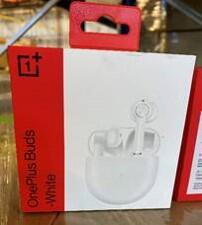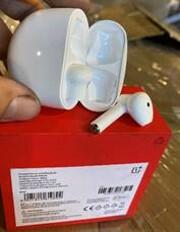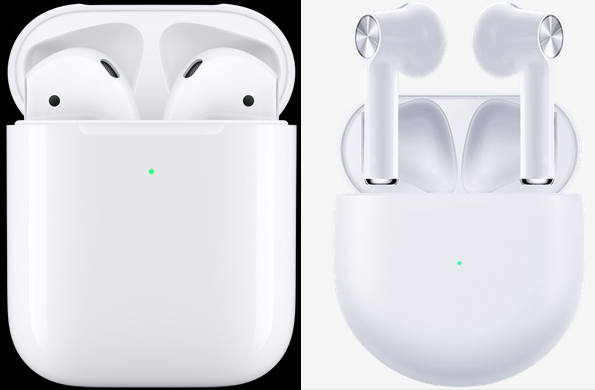
OnePlus
Feds seize OnePlus Buds, mistaking them for “counterfeit” AirPods [Updated]
One of these things is not like the others...
by Kate CoxOriginal story 10:07am EDT: US Customs and Border Protection this weekend proudly tweeted about a high-value seizure of counterfeit electronic goods at John F. Kennedy International Airport. "That's not an 🍎," the agency wrote yesterday, sharing two pictures and linking to a press release.
"CBP officers seized 2,000 counterfeit Apple Airpod Earbuds from Hong Kong destined for Nevada at an air cargo facility," the agency wrote in the press release, dated Friday. "If the merchandise were genuine, the Manufacturer’s Suggested Retail Price (MSRP) would have been $398,000."
CBP was right about two things, at least: the earbuds shipped from Hong Kong, and they are not Apple AirPods. But that's about all the credit you can give it. Judging by the pictures CBP itself shared in both the press release and the tweet, the earbuds are not in any way counterfeit Apple products. They do not say "Apple" on the packaging, they do not have an Apple logo anywhere, and they do not feature any other images or text linking them to Apple.
They are instead, according by the box, completely legitimate OnePlus Buds, in white, which sell for $79. The MSRP for the entire lot of 2,000 comes in at $158,000—less than half of CBP's estimate for a shipment of Apple AirPods with a Wireless Charging Case.



OnePlus, based in Shenzen, China, makes Android phones and accessories. Its most recent, the OnePlus Nord, received extremely positive reviews earlier this summer for packaging high-end Android performance and design into a $450 device.
Counterfeit goods are a real problem, as CBP explains in its press release. The agency says that nationwide in the last fiscal year, it seized about 27,600 shipments of counterfeit goods, which would have been worth about $1.5 billion if they were real. Anyone who has ever shopped at Amazon or a dozen other online retailers knows how challenging it can be to find genuine goods, especially when shopping for something like a replacement charging cable. The fake stuff, in addition to frustrating the companies who are being ripped off, can be genuinely dangerous for consumers.
Usually, though, someone trying to sell a fake puts some kind of effort into passing it off as the real thing, instead of covering it in branding for a completely different, completely legitimate product.
Update 2:59pm EDT: After Ars published this story, CBP responded to our request for comment by apparently doubling down on the seizure.
"Upon examining the shipment in question, a CBP Import Specialist determined that the subject earbuds appeared to violate Apple's configuration trademark. Apple has configuration trademarks on their brand of earbuds, and has recorded those trademarks with CBP," an agency spokesperson said. "Based on that determination, CBP Officers at JFK Airport have seized the shipment under 19 USC 1526 (e). CBP's seizure of the earbuds in question is unrelated to the images or language on the box. A company does not have to put an 'Apple' wordmark or design on their products to violate these trademarks. The importer will have many opportunities through the adjudication process to provide evidence that their product does not violate the relevant recorded trademarks."